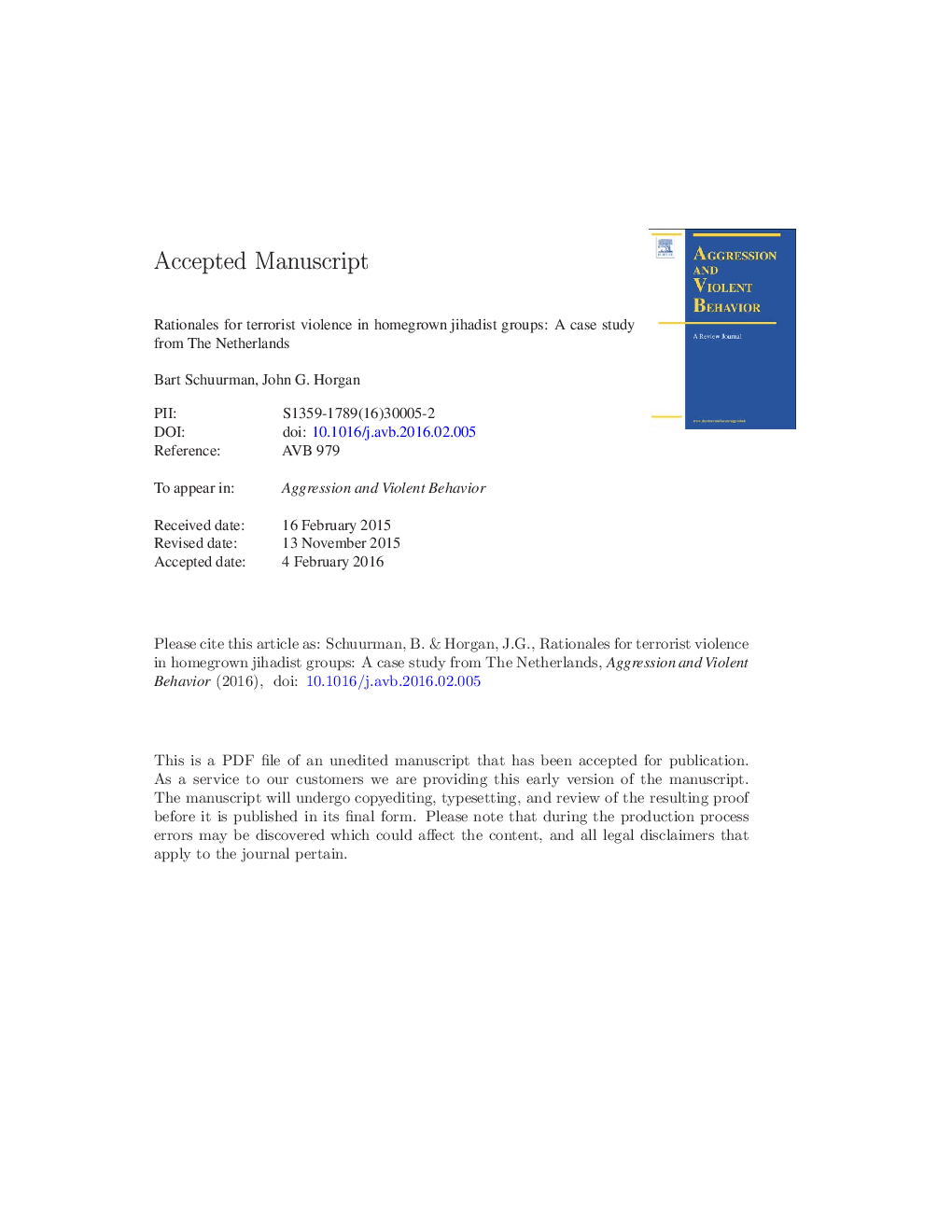| کد مقاله | کد نشریه | سال انتشار | مقاله انگلیسی | نسخه تمام متن |
|---|---|---|---|---|
| 6550209 | 160297 | 2016 | 40 صفحه PDF | دانلود رایگان |
عنوان انگلیسی مقاله ISI
Rationales for terrorist violence in homegrown jihadist groups: A case study from the Netherlands
ترجمه فارسی عنوان
مبانی برای خشونت های تروریستی در گروه های جهادگرای خانگی: مطالعه موردی از هلند
دانلود مقاله + سفارش ترجمه
دانلود مقاله ISI انگلیسی
رایگان برای ایرانیان
کلمات کلیدی
موضوعات مرتبط
علوم پزشکی و سلامت
پزشکی و دندانپزشکی
پزشکی قانونی
چکیده انگلیسی
This paper offers a review of the literature on rationales for terrorist violence and assesses their applicability to European homegrown jihadism. The use of terrorist violence is frequently assumed to be strategic, i.e., that it is a consciously chosen means to achieve certain (political) ends. However, the literature suggests that terrorist acts can also stem from organizational motives that are principally aimed at prolonging the existence and interests of the group itself. These two rationales are used as analytical lenses through which to study primary sources-based data on the Dutch “Hofstadgroup,” a case study that can inform our thinking about European homegrown jihadism more broadly. This analysis reveals that neither strategic nor organizational rationales alone can adequately explain the group's planned and perpetrated acts of violence. Instead, it finds that the most militant participants' rationales for terrorist violence were predominantly personal and furthermore, not necessarily or exclusively tied to their extremist religious convictions. The turn to violence in this group was predicated on a variety of factors at different levels of analysis, including a desire for revenge, the emulation of role models, and the wish to advocate and defend a newfound sense of identity as “true” Muslims.
ناشر
Database: Elsevier - ScienceDirect (ساینس دایرکت)
Journal: Aggression and Violent Behavior - Volume 27, MarchâApril 2016, Pages 55-63
Journal: Aggression and Violent Behavior - Volume 27, MarchâApril 2016, Pages 55-63
نویسندگان
Bart Schuurman, John G. Horgan,
